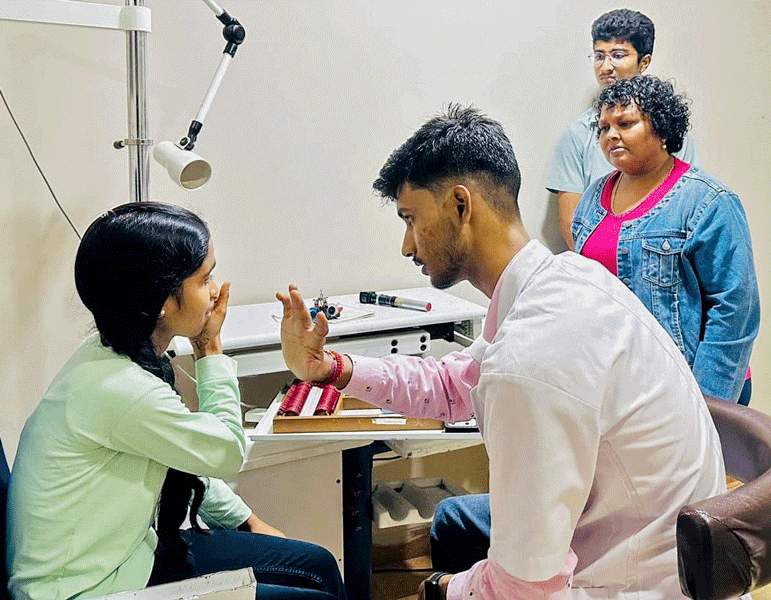Since its launch in 2022–23, Project Drishti, an initiative by RC Indore Uptown, RID 3040, has screened 726 visually-impaired children. Of these, 28 children were identified for corrective surgeries. “We have successfully completed 21 surgeries, enabling the children to regain their vision. We are also working on corneal transplants for seven more children,” says PDG Sanjeev Gupta, a club member. In addition, six children received spectacles, and 15 were given low-vision devices.

Club member Rajan Baweja conceived the project, proposing that the advanced facilities at Choithram Netralaya, a local eye hospital in Indore, could be used to restore vision for the visually impaired. He shared this idea with club member Aradhana Sahay, who has over 22 years of experience in rehabilitating visually-impaired girls and holds a PhD in designing furniture and home fittings for the disabled, as well as a BEd specialising in visually-impaired individuals. “The goal of the project is to screen all visually-impaired individuals in the district and explore options for sight restoration through surgeries and treatments,” says project chair Aradhana.
Choithram Netralaya conducts the initial screenings. “Surgery costs range from ₹10,000 to ₹1 lakh, depending on the complexity. Some of these expenses are reimbursed through the government programme Aayushman, but when that is not possible, they are covered by donations from Rotarians and well-wishers,” explains Gupta.

Beneficiaries are primarily identified from schools and institutions for the visually-impaired, such as Helen Keller Higher Secondary School, the National Federation of Blind and MP Kalyan Sansthan in Dewas. Transporting students to the hospital is sometimes facilitated by the schools if they are within municipal limits, otherwise the club covers the costs.
Gupta also highlighted the crucial support provided by students from Emerald Heights International School, Indore. “These students assisted the visually-impaired children by explaining the doctors’ procedures, helping them move around and providing support during meals. Since they are peers, the visually-impaired children trust them more and feel comfortable in their presence. Many of these bonds have blossomed into strong friendships,” he smiles.
One of the beneficiaries, Gana Rajput, a Class 8 student from Helen Keller School, shares her experience: “ After the operation, when they removed the bandages, the first thing I saw was my father’s face. It was an incredible feeling.”





